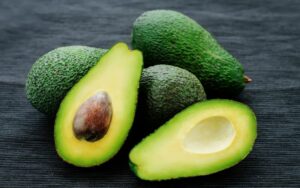Avocado, with its creamy texture and rich flavor, has gained significant popularity in recent years. As people become more conscious of their dietary choices, questions arise about avocados’ nutritional value and whether it can be considered a protein source. In this article, we will explore the composition of avocados, their nutritional content, and their role in a healthy diet. We will specifically address the question of does Avocados have protein.
Avocado Composition
Before delving into the nutritional aspects of avocados, it’s essential to understand their composition. Avocados are fruits that belong to the Lauraceae family. They are botanically classified as berries and are known for their high-fat content. Avocados are rich in monounsaturated fats, which are considered heart-healthy fats.
Nutritional Content of Avocado
Avocados offer a range of nutrients that are beneficial to health. They are a good source of vitamins and minerals, including potassium, vitamin K, vitamin E, vitamin C, and various B vitamins. Additionally, avocados contain antioxidants that help protect the body against oxidative stress.

Avocado’s Role in a Healthy Diet
Incorporating avocados into a balanced diet has numerous health benefits. The high-fat content in avocados contributes to feelings of satiety, making them a satisfying addition to meals. Moreover, the monounsaturated fats found in avocados can help improve heart health by reducing LDL cholesterol levels. Do not forget to read the latest article: Calories in Avocado to learn more >
Avocado as a Source of Healthy Fats
While avocados are not considered a significant source of protein, they are a great source of healthy fats. The monounsaturated fats in avocados have been associated with reducing inflammation, promoting brain health, and aiding in the absorption of fat-soluble vitamins. Including avocados in your diet can be an excellent way to incorporate these beneficial fats into your meals.
Avocado’s Fiber Content
Another noteworthy aspect of avocados is their fiber content. Fiber is essential for maintaining a healthy digestive system and promoting regular bowel movements. Avocados contain both soluble and insoluble fiber, which can contribute to improved gut health and overall well-being.
Avocado and Protein
While avocados offer numerous health benefits, they are not considered a primary source of protein. Protein is essential for the growth, repair, and maintenance of body tissues, and it plays a vital role in various physiological processes. While avocados do contain some protein, the amount is relatively small compared to other protein-rich foods.
The Importance of Protein in the Diet
Protein is a macronutrient that is crucial for overall health and well-being. It is involved in the production of enzymes, hormones, and antibodies, and it plays a significant role in building and repairing tissues. Adequate protein intake is particularly important for individuals who engage in regular physical activity or follow a vegetarian or vegan diet.
Other Protein Sources
For those seeking to increase their protein intake, there are numerous alternative sources to consider. Lean meats, poultry, fish,legumes, dairy products, and plant-based sources such as tofu, tempeh, and legumes are excellent sources of protein. Including a variety of these protein-rich foods in your diet can help ensure you meet your daily protein requirements.
Conclusion
While avocados are not considered a significant source of protein, they offer a wide array of other nutritional benefits. They are rich in healthy fats, fiber, vitamins, and minerals, making them a valuable addition to a balanced diet. To meet your protein needs, it’s important to include a variety of protein-rich foods in your meals




